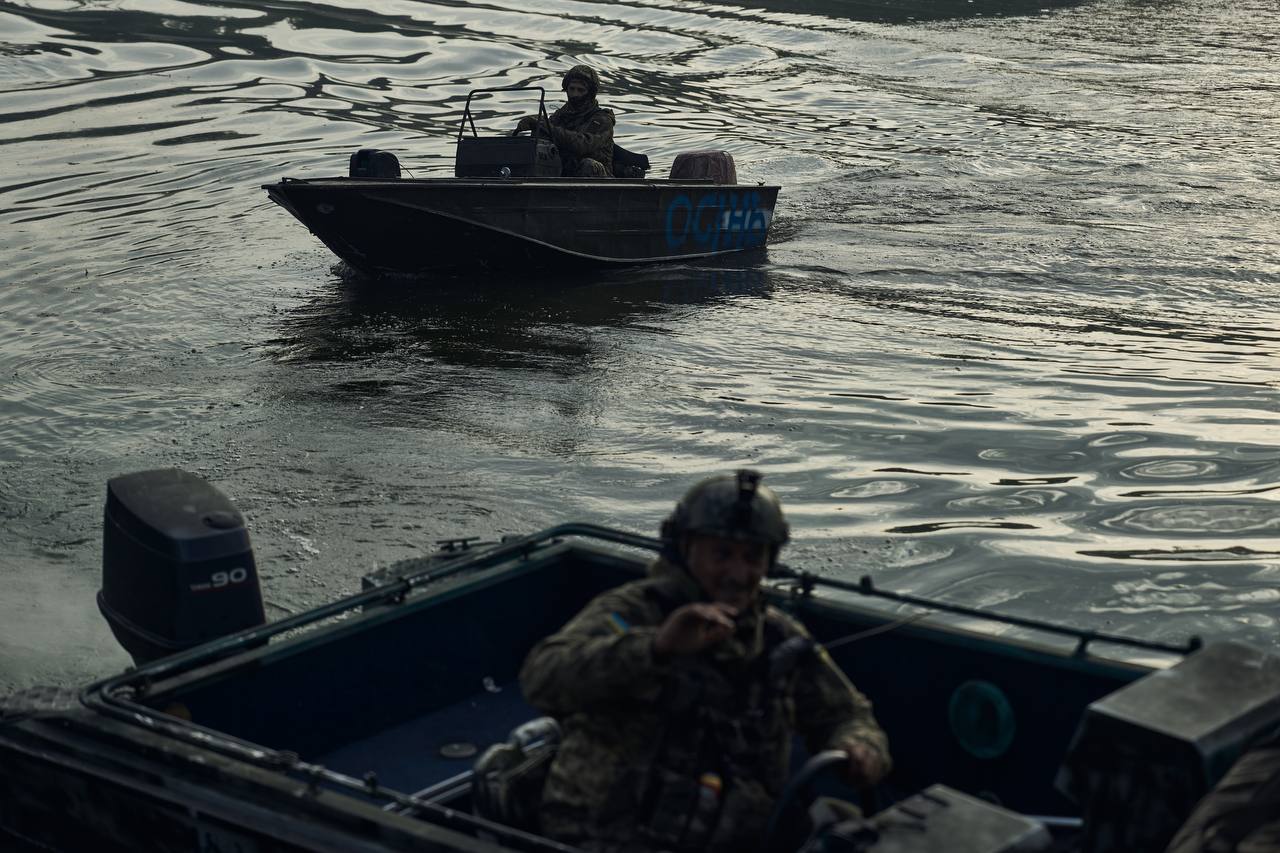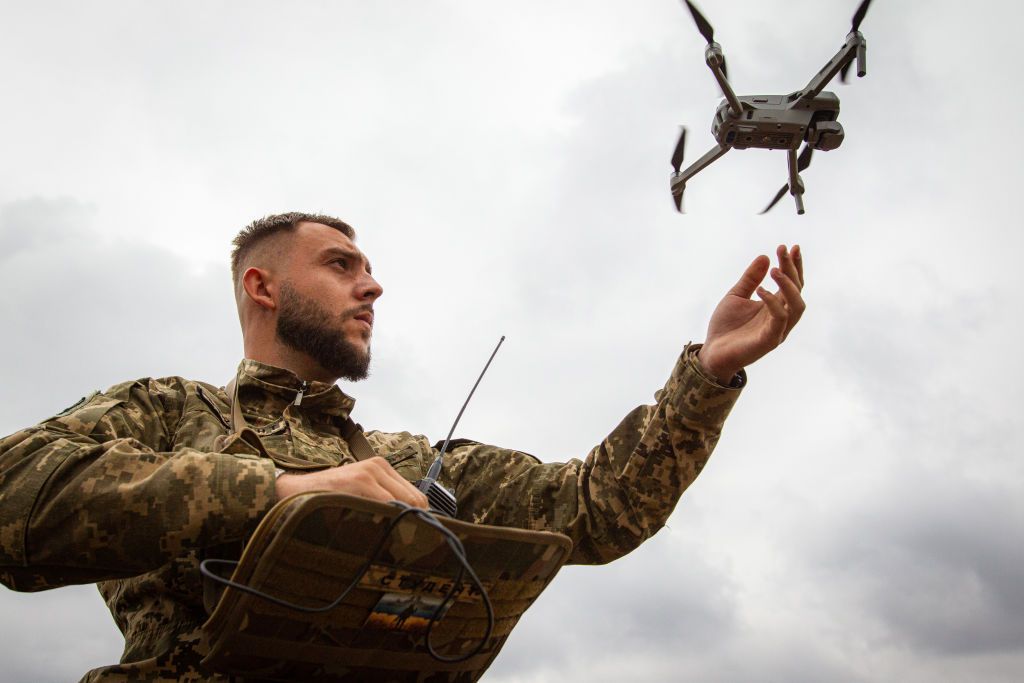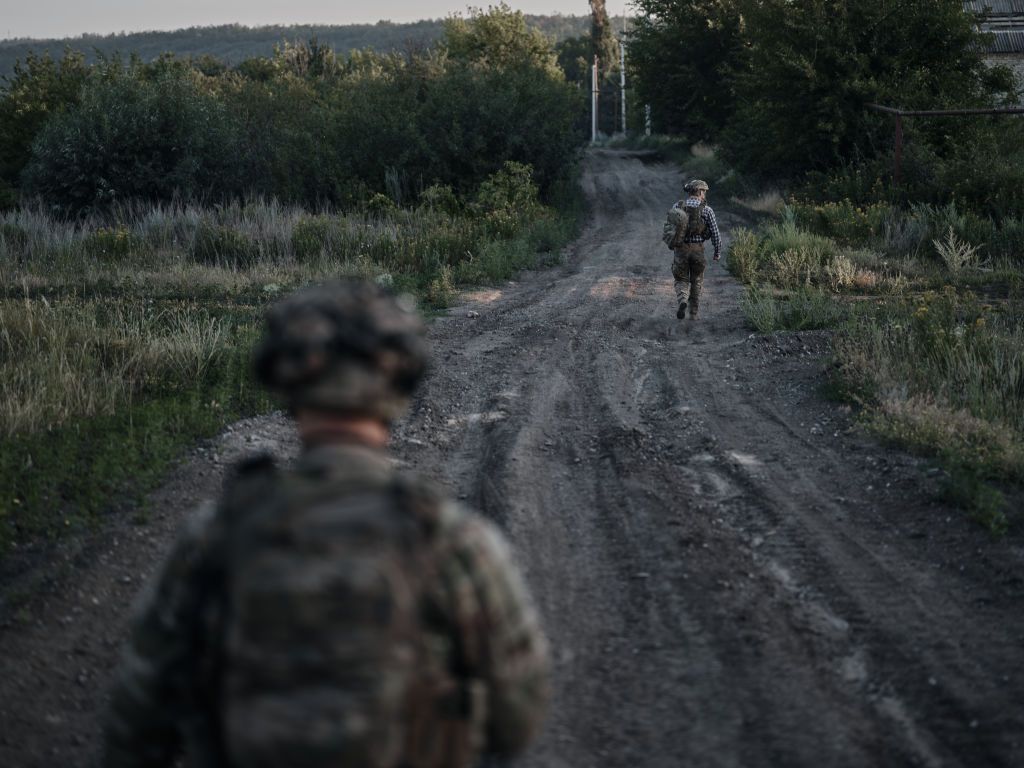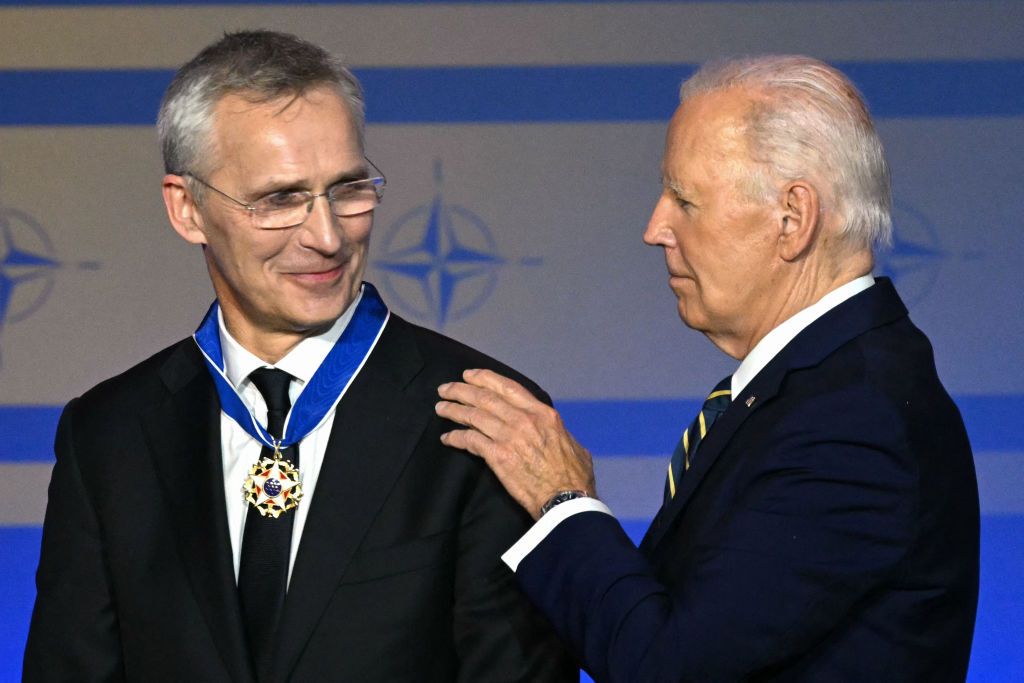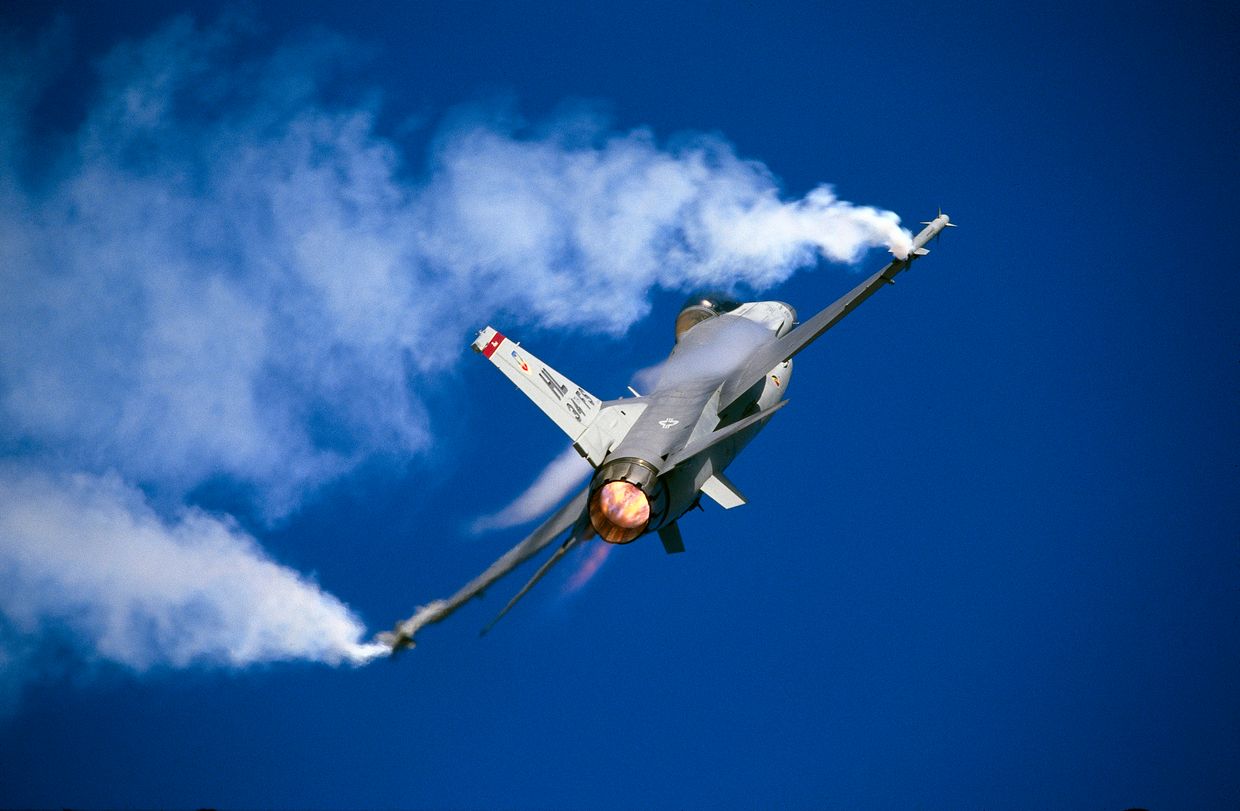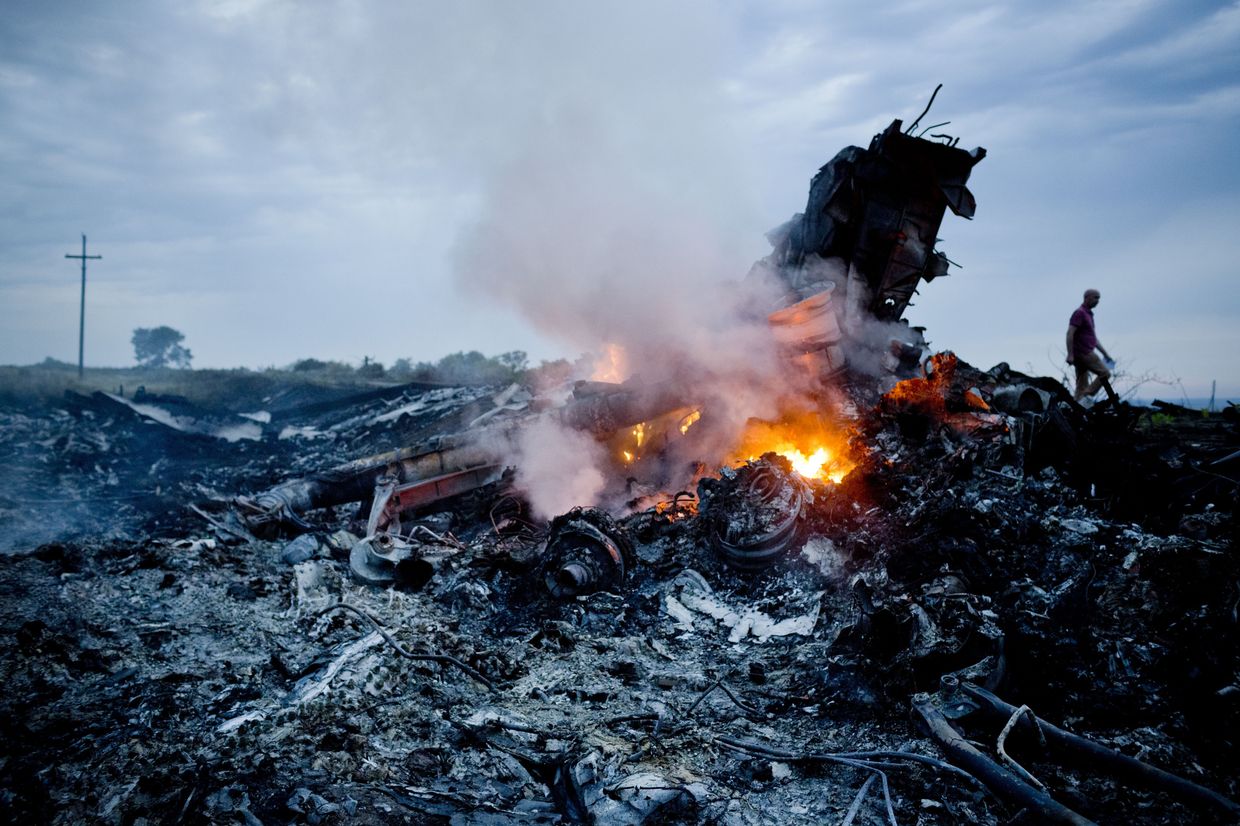Ukraine war latest: Ukraine aims to end 'hot stage' of war by end of 2024, Zelensky says
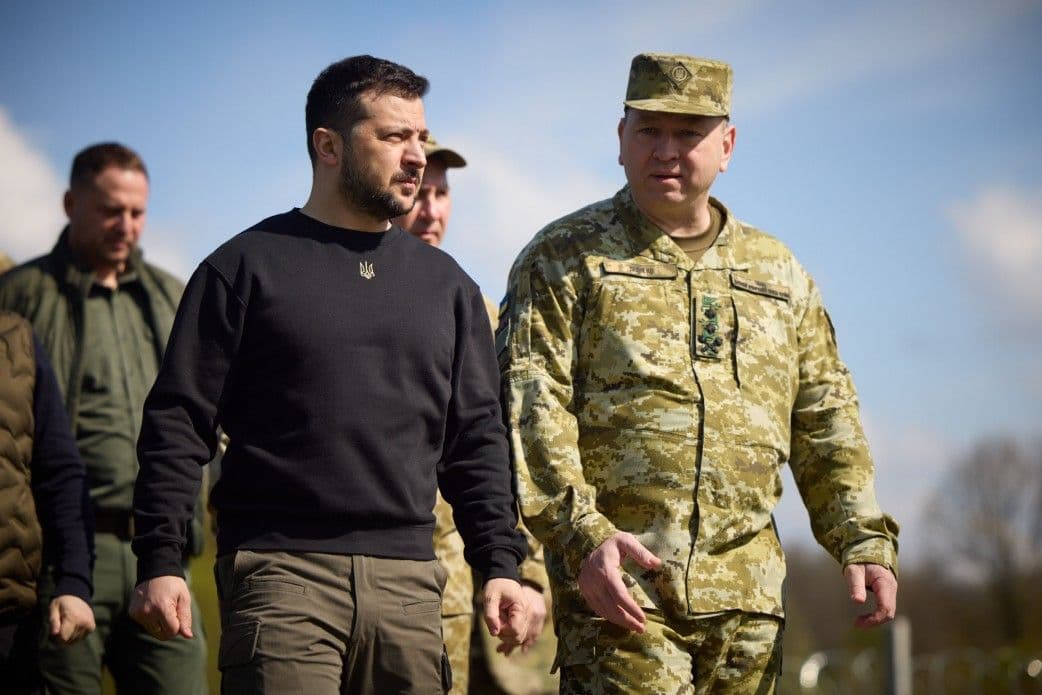
Key developments on July 19:
- Ukraine aims to end 'hot stage' of war by end of 2024, Zelensky says
- UK signs agreement to support Ukraine's domestic arms industry
- Ukraine's military intelligence rules out 'powerful Russian offensives' in new directions
- 'A very big Russia problem' – NATO commander warns of post-Ukraine war threat to US and Europe
- 'It's been 18 months' and F-16s have not yet arrived, Zelensky says
- Ukraine downs Russian Su-25 warplane in Donetsk Oblast
With the support of partners, Ukraine could try to end the hot stage of the war with Russia by the end of the year, President Volodymyr Zelensky said in an interview with the BBC on July 18.
"I believe that if we are united and follow, for example, the format of the peace summit, we can end the hot stage of the war. We can try to do it by the end of this year," Zelensky said.
While promising that such a "plan will be ready," the president did not disclose any practical details on what it could entail.
Russia was not invited to the global peace summit held in Switzerland in June, but Kyiv said it wants to invite a Russian representative to a follow-up conference. Ukraine hopes to present Moscow with a peace plan developed jointly by the summit participants.
The Russian Foreign Ministry rejected participating in the second summit. The world must exert pressure on Russia and force it to consider a diplomatic settlement, the president said.
"It doesn't mean that all territories are won back by force. I think the power of diplomacy can help," Zelensky said, adding that weakening Russia on the battlefield would give Ukraine a more advantageous position in negotiations.
"By putting pressure on Russia, I think it is possible to agree to a diplomatic settlement."
Kyiv and Moscow have not led direct negotiations since unsuccessful talks in early 2022.
Speaking a day ahead of the Switzerland summit, Russian President Vladimir Putin said that as a condition for peace negotiations, Ukraine must fully withdraw from four partially occupied oblasts that Moscow illegally annexed in 2022. Kyiv rejected this demand.
In turn, the Kremlin has rejected Ukraine's key condition in Zelensky's 10-point peace formula on the full withdrawal of Russian forces.
The Republican nominee in the U.S. presidential election, Donald Trump, has repeatedly pledged to end the war within 24 hours, which could, according to some reports, include forcing Ukraine to cede territory.
Hungarian Prime Minister Viktor Orban, whose country is considered the most Kremlin-friendly EU and NATO member, met Trump as part of his self-styled "peace mission" in Florida, claiming that the U.S. politician would quickly demand that Ukraine hold peace talks with Russia if he is reelected.
Commenting on Trump's potential return to the White House, Zelensky said that dealing with him would be "hard work, but we (Ukrainians) are hard workers." Trump has criticized aid for Ukraine in the past, and his sway over the Republican Party contributed to delays in U.S. assistance earlier this year.

UK signs agreement to support Ukraine's domestic arms industry
The U.K. and Ukraine signed an agreement that provides credit support for the development of Ukraine's defense industry, Ukraine's Presidential Office announced on July 19.
Defense Minister Rustem Umerov signed the agreement in London with U.K. Defense Secretary John Healey in the presence of President Volodymyr Zelensky and British Prime Minister Keir Starmer.
According to the Presidential Office, the agreement will support the partial production of air defense systems, armored vehicles, and ammunition in Ukraine.
"Due to the need for rapid development of capabilities and the high cost of defense projects, Ukraine cannot currently finance them from its state budget," the Presidential Office said.
The text stipulates that British suppliers will be able to conclude credit agreements and contracts with Ukraine for up to 2 billion pounds ($2.6 billion).
The agreement will "fire up both the U.K.'s and Ukraine's defense industrial bases and increase military hardware and weaponry production," the British government said ahead of the signing on July 18.
Zelensky arrived in the U.K. on July 18 to attend the European Political Community summit, held at Blenheim Palace in Oxfordshire. Upon arrival, he immediately met Valerii Zaluzhnyi, Ukraine's former commander-in-chief and recently appointed ambassador to the U.K.
Later in the day, Zelensky signed 10-year bilateral security agreements with Czechia and Slovenia and met with King Charles III.
The new agreement follows an agreement signed in April between the U.K. and Ukraine to encourage defense industry cooperation and support joint projects between British and Ukrainian companies.
The agreement was signed in Kyiv during the U.K.'s largest-ever trade mission to Ukraine. A delegation of 29 British defense companies was present at the signing, together with representatives from 70 Ukrainian defense companies.
During the trade mission, BAE Systems also signed an agreement with the U.K. government for the maintenance, repair, and overhaul services in Ukraine of the L119 light gun, a 105 mm howitzer.
As well as the L119, Ukraine's military uses 17 different types of weapons and equipment made by BAE Systems, such as Challenger tanks and Bradley armored vehicles. BAE Systems opened an office in Ukraine in August 2023 to help launch the domestic production of weapons like the L119 in partnership with Ukrainian manufacturers.
Ukraine's military intelligence rules out 'powerful Russian offensives' in new directions
Russian troops continue to push along almost the entire front line, but new "powerful offensives" are unlikely, Ukrainian military intelligence spokesperson Andrii Yusov reported on July 19 during a national television broadcast.
According to Yusov, Ukrainian forces repelled the attacks during Russia's short-lived offensive in Kharkiv Oblast, which began on May 10 and also impacted the situation in Sumy Oblast in the northeast.
"The key target is the Ukrainian Donbas," Yusov said, adding that "the most heroic and dramatic events continue to occur there."
He noted that while Russian forces remain numerous, there have not been significant changes indicating new powerful offensives in new directions.
Ukraine's military intelligence chief Kyrylo Budanov said earlier in an interview with NV news outlet that "there are problems, and they tend to get worse," answering the question about a potential Russian offensive in the northern direction of the front line.
However, Budanov declined to specify whether he was referring to Sumy or Chernihiv oblasts or when such an offensive might occur.

"If I start answering that question, we'll provoke panic," he said. "Let's just say that there are problems, and they tend to get worse."
"There is no catastrophe, but it's impossible not to see the problems. I've already told someone from the Western press: I won't have much good news this year, unfortunately," Budanov said.
President Volodymyr Zelensky later said that Budanov's statement was a "little misunderstood."
"He said that he was a little misunderstood," Zelensky said in comments reported by Ukrinform, adding: "That is, we understand that offensives can occur. We are at war with the Russians, and an offensive can occur."
After Russia opened a new front in Kharkiv Oblast, its offensive was effectively bogged down in just about two weeks, with Ukrainian forces counterattacking near the border town of Vovchansk.
Zelensky said in an interview published on May 25 that Russia's losses during the offensive were eight times higher than those suffered by Ukraine's Armed Forces.
The figures could not be independently verified.
'A very big Russia problem' – NATO commander warns of post-Ukraine war threat to US and Europe
The U.S. and Europe will have a "very, very big Russia problem" regardless of how the war in Ukraine ends, the supreme allied commander for NATO warned on July 18.
Speaking at the Aspen Security Forum in Aspen, Colorado, U.S. General Christopher Cavoli said even a Ukrainian victory would only be the beginning of Western attempts to contain Russian aggression.
"The outcome on the ground is terribly, terribly important, but we can't be under any illusions. At the end of a conflict in Ukraine, however it concludes, we are going to have a very, very big Russia problem," he said in comments reported by Voice of America (VoA).
"We are going to have a situation where Russia is reconstituting its force, is located on the borders of NATO, is led by largely the same people as it is right now, is convinced that we're the adversary, and is very, very angry."
Speaking at the same event, the foreign and security policy advisor to German Chancellor Olaf Scholz gave another grim assessment, saying that "by the choice of (Vladimir) Putin, we are entering a phase of a long, drawn-out conflict with Russia."
"Its bloodiest manifestation, at the moment, is the war in Ukraine. But obviously, it's not the only one," Jens Plotner said.
"We have seen hybrid activity across Europe. We have seen hybrid activity in the United States. We have seen Russia reaching out to Africa. We have seen Russia rekindling ties with Tehran or, even worse, Pyongyang.
"So, I think all of this is part of the bigger picture, which we need to acknowledge."
The warnings come as concerns over the long-term commitment of the U.S. to Ukraine continue to mount.
Former U.S. President and Republican nominee Donald Trump has repeatedly promised to end Russia's full-scale war against Ukraine within 24 hours if elected but has not publicly elaborated on how he plans to do so. One plan reportedly involves ceding territory to Russia.
Senator J.D. Vance, who was recently chosen as Trump's running mate, is thought to be an even more outspoken opponent of U.S. support for Ukraine and has openly endorsed territorial concessions as part of a potential peace deal.
Elsewhere on July 18, NATO Secretary General Jens Stoltenberg told the BBC that NATO allies must prepare for the worst-case scenario of a decade-long war in Ukraine.
"The main message is that the stronger the support for Ukraine and the longer we are willing to commit, the sooner this war can end," Stoltenberg told the BBC. "The paradox is that now (Russian) President Putin believes that he can wait us out. So therefore, the war continues."
Stoltenberg, whose term as secretary general ends in October, has consistently urged NATO allies to increase defense spending amid risks of fracturing among the alliance.
Multiple NATO countries, including Slovakia and Hungary, have questioned NATO's commitment to supporting Ukraine in the war, calling instead for a peace agreement.
'It's been 18 months' and F-16s have not yet arrived, Zelensky says
Ukraine is yet to receive the first of the pledged F-16 fighter jets, despite waiting for them for a year and a half, President Volodymyr Zelensky said in an interview with the BBC on July 18.
The Netherlands, Denmark, Norway, and Belgium have pledged close to 80 F-16s under the fighter jet coalition launched in July 2023, with up to 20 expected to arrive this year.
Kyiv has been calling for these U.S.-made fourth-generation jets since the very first year of the full-scale war in order to bolster its air fleet, which is otherwise made up of Soviet-made aircraft.
Despite promises by U.S. Secretary of State Antony Blinken on July 10 that the first Dutch and Danish F-16s are already on their way, no delivery has been confirmed so far.
"It's been 18 months, and the planes have not reached us," Zelensky said in the interview while stressing that he is thankful for the allied support.
The president added that the fighter jets could help Ukraine push back against Russian forces and "unblock the skies."
Zelensky added that the pledged numbers are not sufficient, as Ukraine requires at least 128 planes to successfully defend itself against Russian aggression.
Although some defense experts do not expect F-16s to become game-changers in the war, the jets may strengthen Ukraine's air defense capabilities and shield the country's population centers from Russia's daily bombardments.
Navy Commander Oleksii Neizhpapa said that the upcoming delivery of F-16s to Ukraine will challenge Russia's "full dominance" of the skies over the Black Sea.
Denmark and the Netherlands indicated that they would allow Ukraine to strike with F-16s inside Russia, although Copenhagen said that such a move would "depend on the circumstances."
Ukraine downs Russian Su-25 warplane in Donetsk Oblast
Ukrainian forces shot down a Russian Su-25 attack aircraft in the Pokrovsk sector of the front in Donetsk Oblast, the Khortytsia group of forces said on July 19.
The plane was downed by anti-aircraft guns of the 110th Separate Mechanized Brigade as it was attempting to fire at Ukrainian positions, the statement read.
The Soviet-designed Su-25, nicknamed "Frogfoot" by NATO, is a heavily armored ground-attack aircraft. It has seen extensive use by both sides in Russia's full-scale war against Ukraine.
Ukraine's General Staff said earlier on July 19 that Russia had lost 361 planes during the full-scale invasion, not counting the Su-25 downed later the same day.
The area near Pokrovsk, a town less than 50 kilometers (around 30 miles) northwest of occupied Donetsk, has become one of the hottest parts of the front.
Khortytsia's spokesperson, Nazar Voloshyn, said earlier today on national television that the number of Russian attacks in the area decreased somewhat over the past few days but heavy battles continue.


